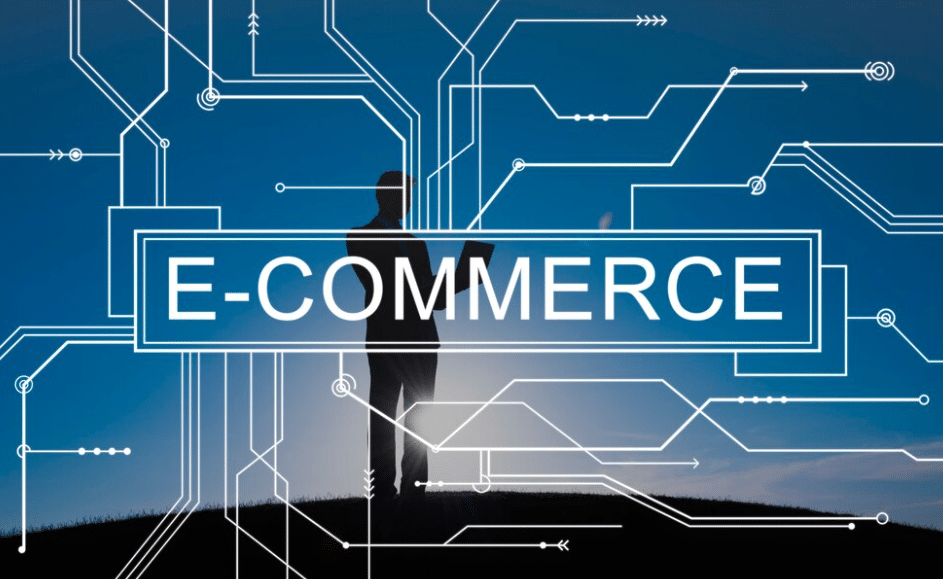ERP (Enterprise Resource Planning) for E-commerce
ERP (Enterprise Resource Planning) for E-commerce, often referred to as E-commerce ERP, is a software solution that combines the capabilities of ERP systems with the specific needs of e-commerce businesses. It is designed to streamline and enhance the management of online retail operations. This integrated system allows e-commerce companies to efficiently handle their online sales, inventory, financials, customer relationships, and other essential business functions.

Enterprise Resource Planning (ERP) for E-commerce: Streamlining Online Retail Operations. In the dynamic landscape of e-commerce, businesses face unprecedented challenges and opportunities. The rapid growth of online shopping, changing consumer behaviors, and the need for seamless customer experiences necessitate efficient and adaptable solutions. This is where ERP for e-commerce steps in, offering a comprehensive system that integrates and streamlines various aspects of online retail operations.
Understanding ERP for E-commerce:
E-commerce Revolution:
The digital revolution has reshaped the retail industry. Today, consumers prefer the convenience of shopping online, prompting businesses to establish their online presence. However, managing an e-commerce operation involves numerous complexities, from inventory and order management to financials, marketing, and customer service.
The Role of ERP:
Enterprise Resource Planning (ERP) systems have long been recognized as tools for optimizing business processes across various industries. In the context of e-commerce, ERP extends its capabilities to effectively manage the entire spectrum of online retail operations. It serves as a centralized hub that integrates and coordinates critical functions, offering a holistic view of the e-commerce ecosystem.
Components of ERP for E-commerce:
1. Inventory Management:
ERP for E-commerce provides real-time tracking of inventory levels, helping businesses avoid overstocking or understocking products. It ensures that products are available for online shoppers when they make purchases.
2. Order Processing:
The system automates order processing, from order placement to fulfillment. It centralizes and streamlines order management, reducing errors and expediting order delivery.
3. Financial Management:
ERP for E-commerce manages financial transactions, including online sales revenue, expenses, and accounting. It ensures accurate financial reporting and provides insights into the financial health of the e-commerce business.
4. Customer Relationship Management (CRM):
CRM features within the ERP system allow e-commerce businesses to track customer interactions, preferences, and purchase history. This data can be used to personalize marketing efforts and improve customer retention.
5. Multichannel Integration:
The ERP system can integrate with various e-commerce platforms, marketplaces, and third-party applications, enabling businesses to expand their online presence and manage multiple sales channels effectively.
6. Analytics and Reporting:
E-commerce ERP offers analytics and reporting tools that help businesses gain insights into sales trends, customer behavior, and the performance of different products or categories. These insights inform strategic decision-making.
7. Scalability:
E-commerce operations often experience fluctuations in sales volume. ERP systems can scale to accommodate increased transaction volumes and adapt to changing business needs.
8. Shipping and Fulfillment:
Integration with shipping and logistics providers streamlines the shipping process, generates shipping labels, and tracks shipments. This ensures efficient order fulfillment and delivery.
9. Returns and Refunds:
ERP for E-commerce facilitates the management of returns and refunds by automating the returns process and updating inventory accordingly. This improves the overall customer experience.
10. Security and Compliance:
The system includes security measures to protect sensitive customer and financial data. It also helps businesses adhere to industry-specific regulations and compliance requirements.
In essence, ERP for E-commerce is a comprehensive solution that empowers online retailers to effectively manage their entire business operation, from the online storefront to backend processes. It enhances efficiency, reduces errors, and improves customer satisfaction in the competitive world of online retail.
Here are key elements and benefits of ERP for e-commerce
ERP (Enterprise Resource Planning) for E-commerce refers to the use of ERP software in conjunction with e-commerce operations to streamline and manage various aspects of online retail businesses. It integrates e-commerce platforms with essential business functions, allowing companies to efficiently handle their online sales, inventory management, and customer interactions. Here are key elements and benefits of ERP for e-commerce:
1. Inventory Management:
ERP for e-commerce enables real-time tracking of inventory levels across multiple online sales channels. It helps prevent overstocking or understocking of products, ensuring that items are available when customers make purchases.
2. Order Processing:
It automates order processing, ensuring that orders from various e-commerce platforms are efficiently received, processed, and fulfilled. This reduces errors, speeds up order delivery, and enhances customer satisfaction.
3. Financial Management:
ERP systems help manage financial transactions, including online sales revenue, expenses, and accounting. This integration ensures accurate financial reporting and visibility into the financial health of the e-commerce business.
4. Customer Relationship Management (CRM):
CRM functionality within ERP allows e-commerce businesses to track customer interactions, preferences, and purchase history. This information can be used to personalize marketing efforts and improve customer retention.
5. Multichannel Integration:
ERP systems can integrate with various e-commerce platforms, marketplaces, and third-party applications, allowing businesses to expand their online presence and manage multiple sales channels from a centralized system.
6. Analytics and Reporting:
ERP for e-commerce provides analytics and reporting tools that help businesses gain insights into sales trends, customer behavior, and the performance of different products or categories. These insights inform strategic decision-making.
7. Scalability:
E-commerce businesses often experience fluctuations in sales volume, especially during peak seasons. ERP systems can scale to accommodate increased transaction volumes and adapt to changing business needs.
8. Shipping and Fulfillment:
Integration with shipping and logistics providers streamlines the shipping process, generates shipping labels, and tracks shipments. This ensures efficient order fulfillment and delivery.
9. Returns and Refunds:
ERP systems facilitate the management of returns and refunds by automating the returns process and updating inventory accordingly. This improves the overall customer experience.
10. Security and Compliance:
ERP for e-commerce includes security measures to protect sensitive customer and financial data. It also helps businesses adhere to industry-specific regulations and compliance requirements.
11. Product Information Management (PIM):
ERP systems for e-commerce often include PIM capabilities. This allows businesses to centrally manage product data, attributes, images, and descriptions. Maintaining accurate and consistent product information is crucial for presenting products effectively to online shoppers.
12. Marketing and Campaign Management:
E-commerce ERP systems can support marketing and campaign management by tracking the performance of online advertising, email marketing, and promotional efforts. This helps businesses refine their marketing strategies for better customer engagement.
13. Personalization and Recommendations:
Leveraging ERP data, e-commerce platforms can offer personalized product recommendations to customers based on their past purchases and browsing behavior. This enhances the online shopping experience and can increase cross-selling and upselling opportunities.
14. Mobile Commerce Integration:
With the growing use of mobile devices for online shopping, ERP for e-commerce ensures that businesses can provide a seamless mobile shopping experience. This includes responsive design, mobile app integration, and mobile payment options.
15. International E-commerce:
For e-commerce businesses operating globally, ERP systems help manage currency conversions, tax compliance, and language localization. This enables international expansion and ensures compliance with regional regulations.
16. Vendor and Supplier Management:
Efficient management of supplier relationships is essential for e-commerce businesses. ERP systems provide tools for vendor communication, order tracking, and procurement management.
17. Customer Support and Service:
ERP for e-commerce can integrate with customer support systems to provide efficient customer service. It enables support agents to access order information, track shipments, and resolve customer inquiries promptly.
18. Competitive Insights:
E-commerce ERP systems may offer competitive intelligence features that allow businesses to monitor competitor pricing, promotions, and product offerings. This information helps in making strategic pricing and product decisions.
19. Sustainability and Supply Chain Visibility:
Some ERP solutions focus on sustainability and supply chain visibility, helping e-commerce companies track the environmental impact of their operations and make more sustainable choices in their supply chain.
20. Integration with Third-party Tools:
E-commerce ERP systems can integrate with various third-party tools and extensions, such as payment gateways, e-commerce analytics, and marketing automation platforms, to enhance the overall e-commerce ecosystem.
In conclusion, ERP for e-commerce plays a vital role in streamlining and optimizing online retail operations. It offers a comprehensive solution for managing everything from inventory and orders to customer relationships and marketing efforts. This integration leads to improved customer experiences, increased sales, and greater operational efficiency in the competitive world of e-commerce.

Leave a Reply